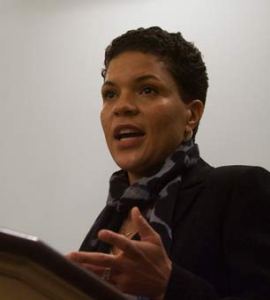Racial Politics & Schooling
Over the weekend I was reading a very interesting interview by Michelle Alexander, author of the book The New Jim Crow: Mass Incarceration in the Age of Color-Blindness. If you haven’t read the book, I suggest you pick it up and read it. The book provides an in depth analysis of how the War on Drugs has been used as the backdrop for creating a group of second-class citizens rendering African-American without many of the rights that most Americans enjoy.
Alexander writes in her book:
“What has changed since the collapse of Jim Crow has less to do with the basic structure of our society than the language we use to justify it. In the era of colorblindness, it is no longer socially permissible to use race, explicitly, as a justification for discrimination, exclusion, and social contempt.”
Some of the very language masquerading as “reform” has codified discrimination, exclusion, and social contempt. The Ultimate War on Mediocrity works to call out those structures and work to find solutions to these structures.
The message from Michelle Alexander for teachers stuck out to me the most:
“It’s important to teach them about the reality of the system, that it is in fact the case that they are being targeted unfairly, that the rules have been set up in a way that authorize unfair treatment of them, and how difficult it is to challenge these laws in the courts. We need to teach them how our politics have changed in recent years, how there has been, in fact, a backlash. But we need to couple that information with stories of how people in the past have challenged these kinds of injustices, and the role that youth have played historically in those struggles.
I think it’s important to encourage young people to tell their own stories and to speak openly about their own experiences with the criminal justice system and the experiences of their family. We need to ensure that the classroom environment is a supportive one so that the shame and stigma can be dispelled. Then teachers can use those stories of what students have witnessed and experienced as the opportunity to begin asking questions: How did we get here? Why is this happening? How are things different in other communities? How is this linked to what has gone on in prior periods of our nation’s history? And what, then, can we do about it?”
To read Michelle Alexander’s full interview please click here.

